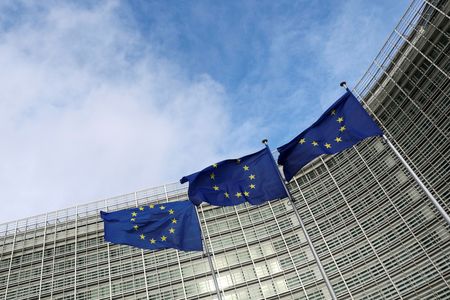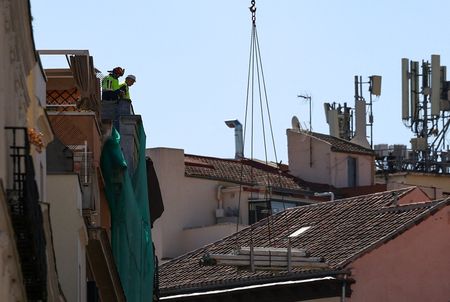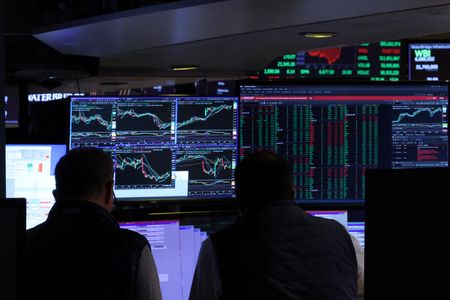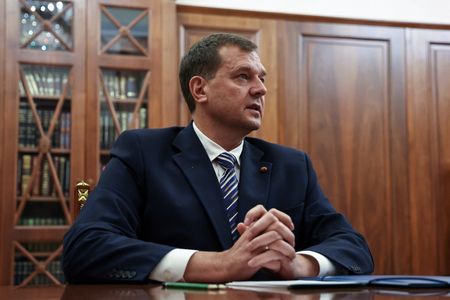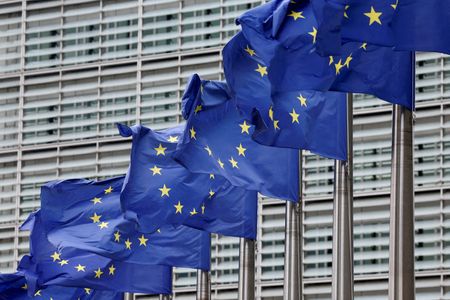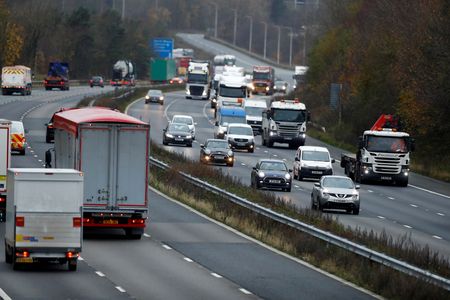By Kate Abnett and Simon Jessop
BRUSSELS (Reuters) -The European Union will double down on its support for reforming global development banks to do more to fight climate change, a draft EU document showed, a stance that puts Brussels at odds with the U.S. ahead of World Bank and IMF meetings this month.
The International Monetary Fund and World Bank Group are preparing for their annual meetings in Washington against a backdrop of aid cuts and climate change scepticism from U.S. President Donald Trump.
In April, U.S. Treasury Secretary Scott Bessent said the institutions should refocus on their core mandates and were devoting too much time and resources to topics like climate change.
Draft conclusions for a meeting of EU finance ministers on Friday, seen by Reuters, showed the EU will reiterate its backing for development banks’ work to tackle climate change – and push for reforms to unlock more of this funding.
The EU “calls on all shareholders to support the necessary strengthening of the MDBs (multilateral development banks) to deliver at scale and to align with the Paris Agreement objectives for accelerating the implementation of global climate action,” the draft said.
The United States is the biggest shareholder in the World Bank and the IMF. EU members including Germany and France have smaller voting powers in the institutions.
The EU document, which could still change before ministers adopt it, said the bloc backed reforms to de-risk projects, offer local currency financing and make credit risk data more transparent, to unlock bigger private investments.
It said multilateral development banks should phase out their financing of fossil fuels, and “comprehensively report on the efforts and progress in this context”.
Over the last few years, the World Bank and other MDBs have begun reform processes which could see them make more funding available or take on more climate-related risk. Countries vulnerable to extreme weather, such as Barbados, have led calls for reforms to address developing nations’ challenges with high debt levels, climate change and slower growth.
Campaigners have urged the World Bank to stick to this pathway ahead of its annual meeting on 13-18 October, despite the U.S. under Trump withdrawing from global efforts to counter climate change.
Europe’s own lending arm, the European Investment Bank, has meanwhile made climate change its core focus, aiming to double its investments in adapting to climate change to 30 billion euros by 2030.
(Reporting by Kate Abnett, Simon JessopEditing by Peter Graff)

